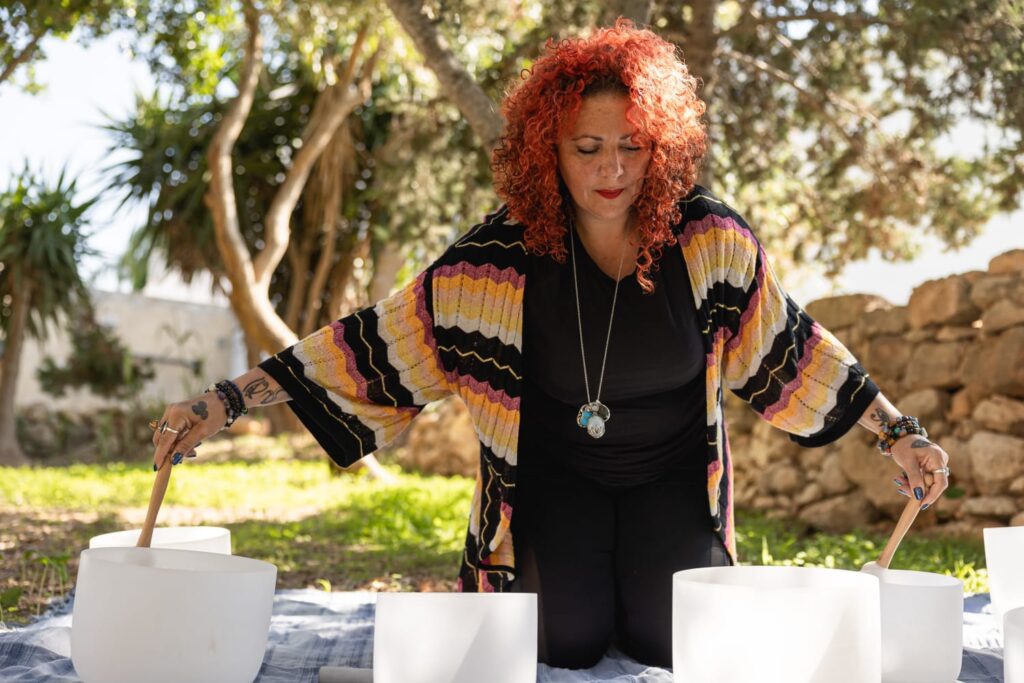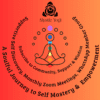Losing a loved one can be a very stressful experience for anyone. When my father passed away, I began deepening my journey of self-discovery and self-acceptance. I discovered how sound healing combined with mindfulness meditation and Yoga Nidra as a means to cope with bereavement became a valuable approach to a difficult time in my life.
Mindfulness Meditation, Yoga Nidra & Sound Healing Therapy individually, are therapeutic and very effective practices deeply rooted in an evidence based approach which does away with any myths that could tarnish its numerous benefits.
Discovering mindfulness practices.
I had already been exposed to a variety of practices involving meditation practices such as Yogic meditations and a different variety of mindfulness practices over the years prior to a series of events which led me into a little bit of a dark place, yet at the same time with work to tend, I just needed to find a way to overcome the overwhelm.
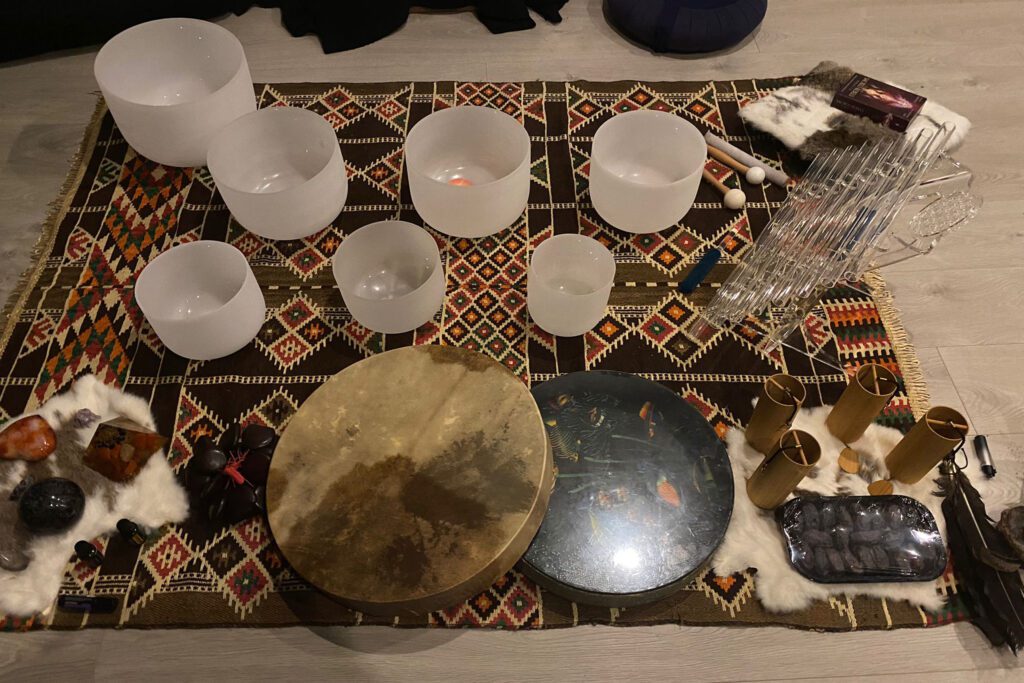
When you are in overthinking mode, it requires a bit of grounding to remember what tools are available in your self-care kit, I reached out to a holistic doctor for a little support and she suggested sound frequencies, Reiki and Vipassana meditation. I had resisted the idea initially thinking I could try to force and push myself into overcoming the overwhelm using my practices. It just wasn’t really working because my mind was busy no matter how hard I tried.
I initially resisted the idea, thinking this won’t work, I was in a very dark place. I thought that Vipassana meditation would be intensely boring. Yet, I gradually leaned into this kind of stillness meditation on my own and began to experience some changes. I found moments of clarity and tranquility. My physical health improved too: the headaches disappeared and I began finding lasting inner peace.
Integrating it in life, like with everything that I do, I decided to explore this further, I found a teacher and began practicing and learning Yoga Nidra and practicing stillness daily for 2 hrs morning and evening. I also bought some sound healing instruments and started practicing and playing them as part of a meditation with the guidance on a tutor for my benefit and of course to assist others who were also struggling with overthinking due to possible difficult trajectories.
All forms of Meditation prepare us to notice whatever is going on in our lives. Our thoughts, emotions, how our body feels, and even our surroundings. From that perspective, regular practice enables us to see things clearly. It reminds us to make choices in the direction of the life that we aspire to and to make better decisions based on values that are important to us.
One of my teachers made an example for me how before training, when I was triggered 10 times, I would lose my balance 10 times. Now with mindfulness training, if I’m triggered 10 times, I react 9 times, if at all, that’s how greatly it has benefited me and others I know. Evidence to understanding meditation practices.
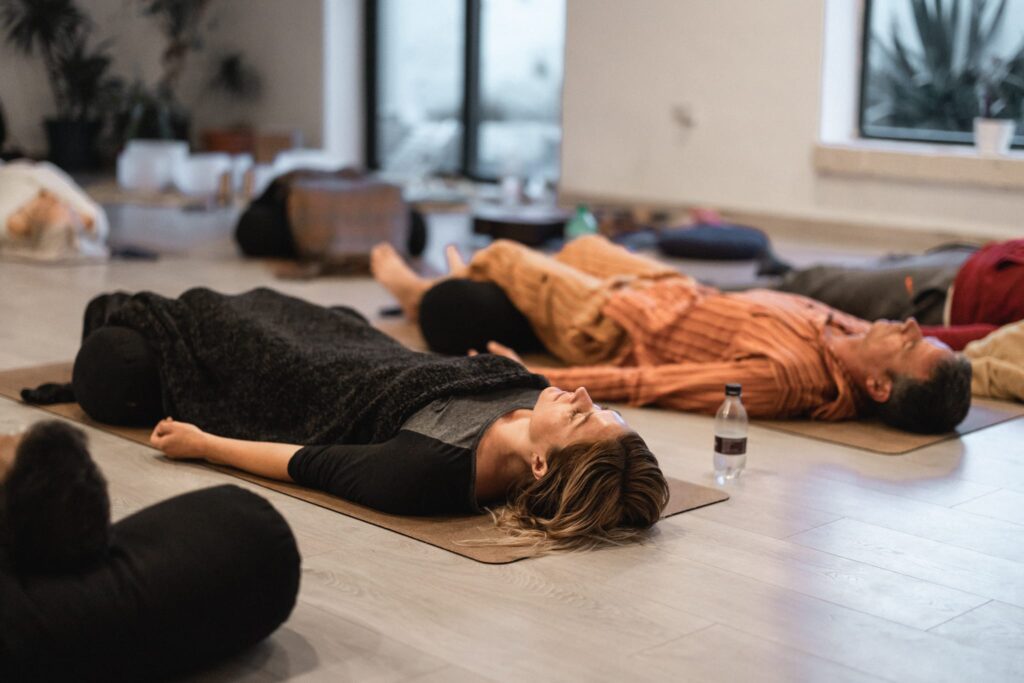
It’s important for people like myself who support others through diverse holistic practices, to be able to offer proven evidence based information to others seeking to alleviate their own daily trials and difficulties due to stress based triggers. Not everyone is open to experiencing Vipassana, Yoga Nidra, Mindfulness, Meditation practices or Sound Healing Therapy, therefore, assisting people who see these concepts as alien to their common knowledge through evidence based understanding can offer even the most skeptical a little light at the end of their tunnel of doubt.
There is a wealth of neuroscience research that sheds light on the benefits of these practices, to name a few, they strengthen the immune system, alleviate stress and depression, and even changes the structure, chemistry, and function of the brain of a person for the better.
Myths about meditation.
Meditation and other mindful practices have their fair share of myths and misconceptions. It’s unfortunate that many associate these practices with eastern religious practices. However, isn’t seeking wellness and well-being a universal desire? Aren’t we all looking for inner peace? Where does religion fit into this?
It doesn’t, it’s just a deeply misconstrued notion because of the provenance of the practices which actually, have been shown to deeply effect our nervous system in a positive way.
It is with its regular inclusion in our lives that we reap result. Which brings me to the second misconception. Immediate results aren’t available from anything that requires us to practice. Think about it. After a week in the gym we don’t have a six pack, but with consistent practice and dedication we can achieve those results. It’s the same with these meditative practices. They need participation, perseverance and motivation. Dissolving expectations and simply focusing on self-care is the key to a successful practice.
The last misconception I will address here, is that we need to sit like monks on mountains to be able to meditate. Meditative practices are not about posture, although I recommend being comfortable whether laying down with props for Nidra or sound healing therapy or siting on the floor against a wall or on a chair with your feet on the ground, I also encourage the adoption of comfort. It’s another important factor to be able to retain focus on the practice.
Tips to get the most out of your meditation if you’re a beginner, I would simply guide you to practice patience with the process of the practice you undertake. If you have any expectations, write them down and then throw them away because these are a distraction from your progress. You may also like to talk to your teacher, mentor or guide about these since this is a process of self-acceptance and self-care. Wholeness is where you are beginning and not from a place that requires you to fix something that’s broken.
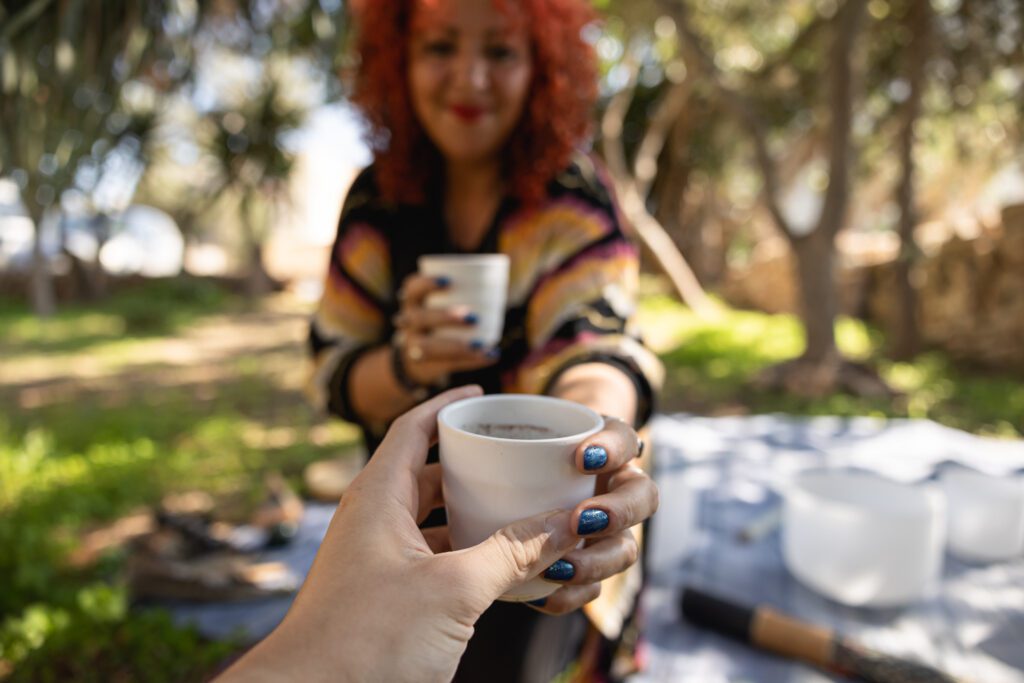
Mindful meditative practices take us into a place of understanding ourselves on a deeper level, getting to know our patterns, habits and maybe even reviewing our beliefs about certain things in our lives that lead us into places which we may be sabotaging ourselves. The aim is always to pull away from these through the practices.
As a result of continual dedication to the practice, understanding that rest and recuperation are an integral part of our process to live and that the knowledge that founds the science of these meditative practices enables people to gain direct benefits through the consistent application of these practices in their lives.
Find the practice that best resonates with you, your daily life and its personal requirements.
If you would like to book a private meditation or sound healing therapy session or might like to participate in one of our recoding nourishment retreats let me know how I can help you.
Love in all ways
Rebekah
Maltese Mystic

